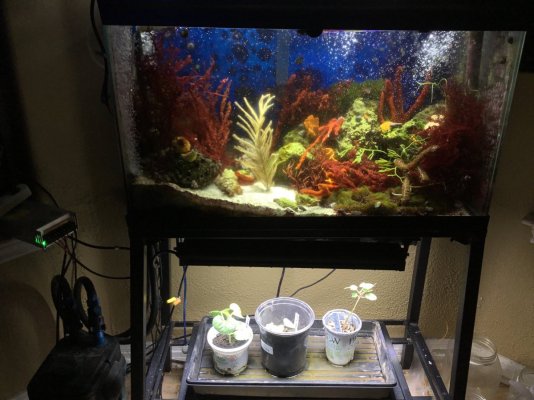So.... Nearly a week into putting my new additions into the tank and was told by my LFS that I should expect to see an ammonia spike..... I haven't..... It's been reading 0 ammonia all week.
However, my Nitrites are still quite high. Not seen them drop below 1.
All other parameters seem to be fine and the fish/CUC are doing good. No signs of distress, feeding well and the water is still crystal clear.
Any ideas on what is going on or is it just a time thing to allow the nitrites to drop?
I don't know if a water change is needed yet? (I did a couple of water changes a few weeks back and was told to stop as I was doing them too early with no livestock in the tank!)
Any help appreciated
However, my Nitrites are still quite high. Not seen them drop below 1.
All other parameters seem to be fine and the fish/CUC are doing good. No signs of distress, feeding well and the water is still crystal clear.
Any ideas on what is going on or is it just a time thing to allow the nitrites to drop?
I don't know if a water change is needed yet? (I did a couple of water changes a few weeks back and was told to stop as I was doing them too early with no livestock in the tank!)
Any help appreciated
















